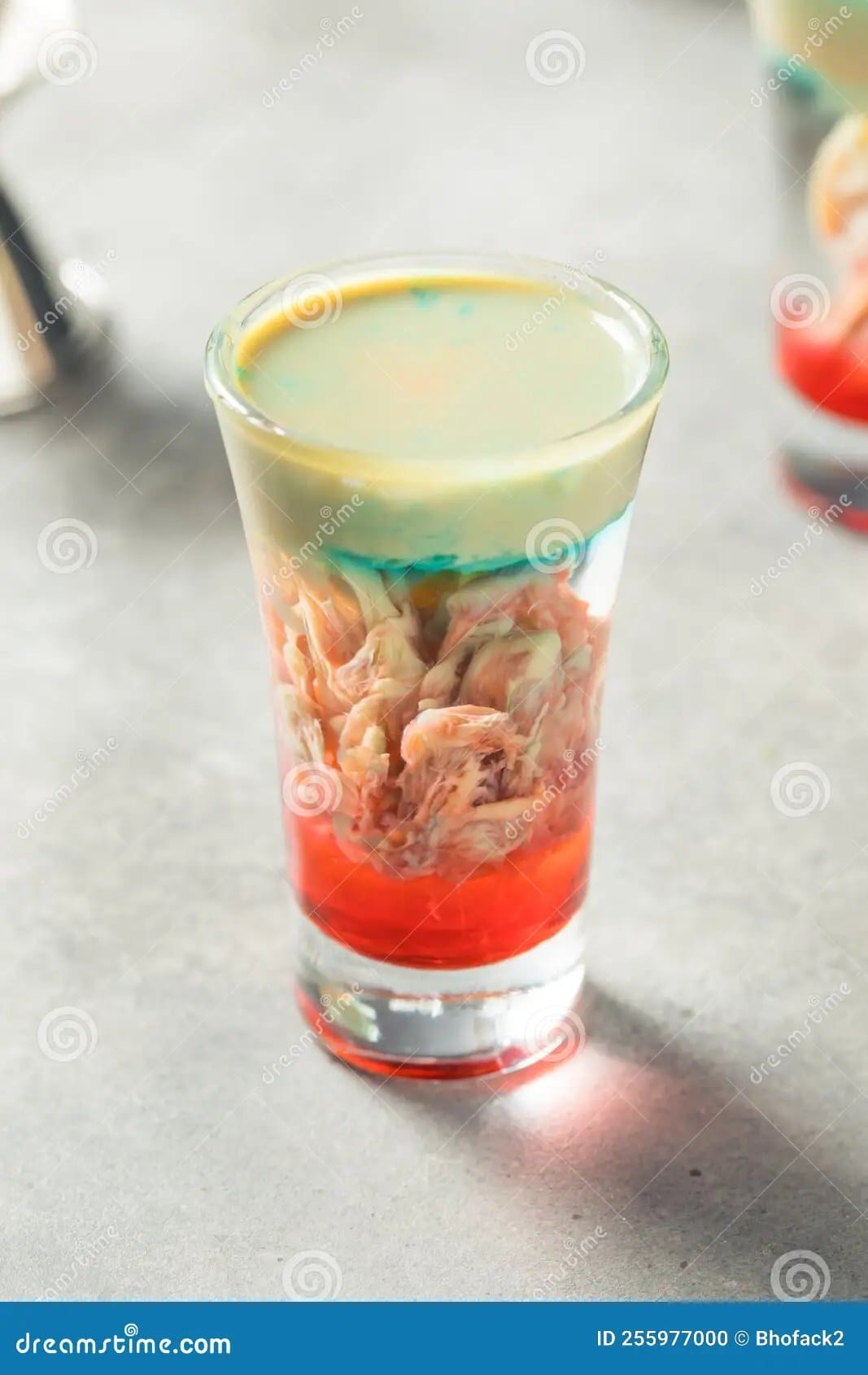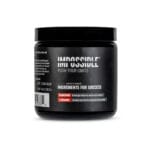This Halloween, ditch the predictable punch and dive headfirst into the gruesomely delightful world of the Alien Brain Hemorrhage shot! This shockingly delicious cocktail is as captivating to the eye as it is to the palate. Don’t let the name scare you off; this layered concoction is surprisingly simple to create, offering a sweet and creamy treat with a touch of spooky flair. Get ready to impress your guests and unleash your inner mixologist with this ultimate guide to crafting the perfect Alien Brain Hemorrhage.
Unleash Your Inner Mixologist: Crafting the Perfect Hemorrhage
The Alien Brain Hemorrhage shot isn’t just a drink; it’s a conversation starter, a visual masterpiece that mimics a bleeding brain with swirling red and blue hues. But beneath the macabre facade lies a surprisingly sweet and smooth cocktail, perfect for Halloween and beyond. Even better, this visually complex shot is remarkably easy to master, even for beginner bartenders.
The Core Ingredients: A Bloody Good Start
Before we delve into the step-by-step process, let’s gather our essential ingredients:
- Baileys Irish Cream: This creamy liqueur forms the “brain” itself, providing the drink’s smooth, sweet base.
- Peach Schnapps: This fruity liqueur adds a touch of sweetness and forms the layer beneath the “brain,” contributing to the overall flavor profile.
- Blue Curaçao: The star of the show! This vibrant blue liqueur creates the “alien” effect, mimicking a chilling hemorrhage spreading through the creamy layers.
- Grenadine: This thick, red syrup forms the “blood pool” at the bottom of your glass, setting the stage for the gruesome spectacle.
Step-by-Step Guide: From Bloody Base to Alien Invasion
Now that we have our arsenal, let’s dive into the creation process:
The Bloody Foundation: Grab a shot glass or a small, clear glass. Clarity is key to showcase the mesmerizing layers! Begin by drizzling a generous splash of grenadine into the bottom. This forms your “blood pool.”
The Brain Matter: Next, gently layer the peach schnapps over the grenadine. The schnapps, being slightly less dense, will likely float on top. A jigger or the back of a spoon can help achieve a clean layer. Tilt the glass and pour slowly down the side to avoid disturbing the grenadine.
The Cranial Coating: Now for the brain itself! Carefully pour the Baileys Irish Cream over the peach schnapps. Again, slow and steady wins the race. The Baileys will probably settle on top, creating a cloudy, brain-like appearance. Use the same tilting and slow-pouring technique.
The Alien Touch: Finally, the element that earns this drink its otherworldly name. Add a few drops of blue curaçao. It will likely spread out in wispy, vein-like patterns across the Baileys, completing the “alien brain hemorrhage” effect.
Tips and Tricks: Elevating Your Hemorrhage to an Art Form
Chilled Ingredients: Chilling your ingredients may help the layers separate more distinctly.
Pouring Technique: Practice makes perfect! Mastering the slow, controlled pour is crucial for achieving clean, defined layers. Using the back of a spoon to gently guide the liqueur can further enhance precision.
Garnish (Optional): Elevate the creep factor with a gummy worm, a plastic spider, or even a few drops of edible “blood” splatter. For a smoky, otherworldly touch, consider using a piece of dry ice (handle with care!).
Delving Deeper: History, Variations & The Science of Layering
The Alien Brain Hemorrhage likely emerged from the shadowy depths of the internet sometime in the early 2000s, evolving from the original Brain Hemorrhage shot. Its recent surge in popularity is a testament to the power of social media and our enduring fascination with the macabre. Want to explore variations? Try substituting Midori for a melon-flavored “Toxic Waste” Hemorrhage, or Chambord for a “Raspberry Brain Burst”.
The magic of this drink lies in the science of layering. The different densities and viscosities of the liqueurs cause them to separate, creating the distinct layers. Grenadine, being the densest, sinks to the bottom. Each subsequent layer, with decreasing density, floats on top, culminating in the wispy tendrils of the blue curaçao.
Beyond the Shot Glass: Responsible Enjoyment & Food Pairings
While the Alien Brain Hemorrhage is undeniably fun, remember to enjoy responsibly and be mindful of your limits. Now, what to pair with this otherworldly concoction? Consider contrasting its sweetness with savory snacks like spiced nuts or cheese and crackers. For a sweeter pairing, dark chocolate or brownies can complement the creamy Baileys.
Exploring the Psychology of “Gross-Out” Drinks
Why are we so drawn to cocktails that look like they belong in a horror movie? Some experts suggest it taps into our playful side, our willingness to embrace the weird and wonderful, especially during Halloween. It’s a multi-sensory experience that goes beyond just taste, offering a delightful shock factor.
Brain Hemorrhages: A Serious Matter
While our cocktail celebrates the macabre in a fun, playful way, it’s important to remember that a real brain hemorrhage is a serious medical condition. If you’re interested in learning more about the causes, treatments, and prevention of this life-threatening event, you can explore more on this subject: How to Avoid a Brain Hemorrhage? or What is a craniotomy brain haemorrhage?. Always consult with a healthcare professional for any medical concerns.
This comprehensive guide equips you with everything you need to master the Alien Brain Hemorrhage shot, from the basic recipe to advanced techniques and variations. So, gather your ingredients, unleash your inner mixologist, and prepare to impress your guests with this gruesomely delicious cocktail. If you’re dealing with a lice infestation, you may be wondering if you can use household products to get rid of them. Does Lysol kill lice? Read on to find out.
















